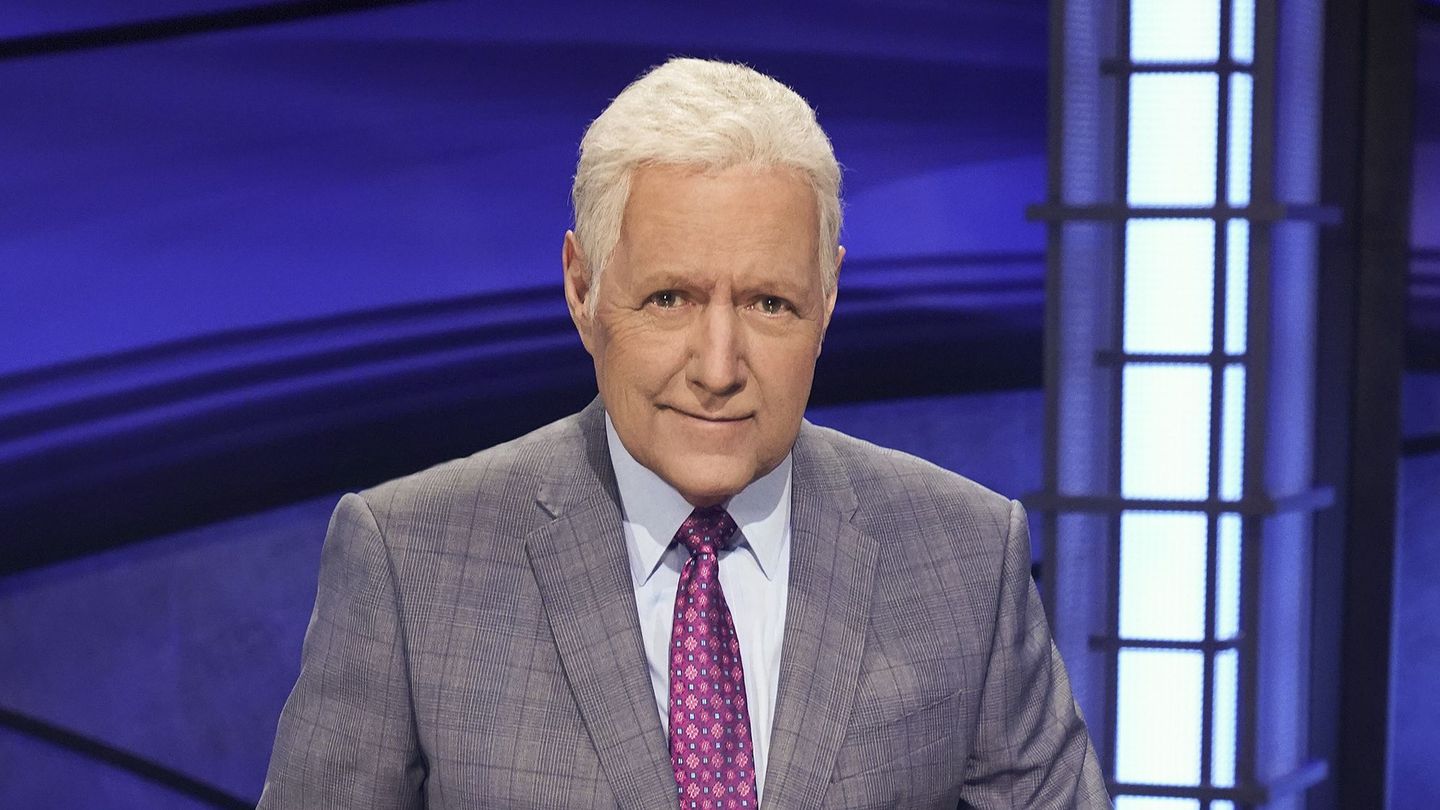
Alex Trebek Made Jeopardy! Just By Showing Up
A decade ago, Alex Trebek had been hosting Jeopardy! for 26 years, a full six longer than I’d even been alive. I had no car or job, and it was summer vacation, so I began watching the show as something to do, a way to kill 30 minutes between dinner and whatever suburban sojourn I’d scuttle off to that night. But it quickly grew into a disciplined routine. I’d keep a spreadsheet tracking how many answers I got right as I watched at home, hoping to impress my family (and myself) with my vast knowledge of global geography and classical literature; after a few weeks, I realized I wanted to impress Trebek, too, should I ever make it onto the show as a contestant. He had become a fixture in my life, a steady presence whose warm wit made a trivia game show feel like a nightly fireside chat.
Trebek, who died at age 80 on Sunday (November 8) of pancreatic cancer, hosted Jeopardy! for 8,200 episodes across 37 seasons, setting the Guinness World Record for hosting the most episodes of a single game show, and the program has long been synonymous with his erudite presentation style. He began at the podium for its 1984 revival, and by 1997, Will Ferrell was regularly portraying him on Saturday Night Live as a hapless cog trying to rein in dimwitted celebrities like Darrell Hammond’s Sean Connery. (That the real-life Connery died a week ahead of Trebek was not lost on folks online.)
But Trebek, a good sport, was notably characterized by a demeanor of self-assuredness, adding flairs of French pronunciation to his clue readings and lending a stately geniality to a gig that occasionally required him to deadpan rap lyrics. Throughout my Jeopardy!-spreadsheet summer — and a few years prior, during contestant Ken Jennings’s legendary 74-game run — it became clear to me how crucial to the show’s ecosystem Trebek’s disposition was. You might have mistaken it for regular TV-host smarm. Add in the braininess of the game, and you might have pegged him as an elitist. Trebek was neither. Trebek was aspirational.
Trebek was also quite warm. The show’s production schedule meant he filmed five episodes per day and met nearly a dozen new contestants in that five-hour span. He’d be the anchor, a measured presence amid the fast-paced game play, which only got more chaotic when big-time winners like James Holzhauer strategically destabilized its usual rhythms to great, record-setting success. That itinerary also required Trebek to assume a convivial, gently inquisitive tone to ask the contestants about their often quite ordinary lives. He managed to make a lot of bookish people’s mundane anecdotes — I distinctly remember one contestant talking about his trademark of flipping people’s toilet paper so that the roll hung “the right way†— feel interesting, at least for a moment.
Sometimes, it got deeper than that. As Trebek became a television staple, the actual reach of the show grew. During an episode taped in August that aired last week, champion Burt Thakur held back tears as he told Trebek how he learned to speak English by watching the host on Jeopardy! with his grandfather. “I used to sit on his lap and watch you every day,†he said, “so it’s a pretty special moment for me, man.†Another contestant, Dhruv Gaur, made Trebek choke up by using his Final Jeopardy! answer as a message of hope and strength in a game taped in November 2019, shortly after Trebek announced he’d be re-entering chemotherapy. Gaur wrote: “What is We <3 you, Alex!â€
Jennings has likened Trebek to beloved, longtime CBS news anchor Walter Cronkite, tweeting that he’s an “authoritative, reassuring TV voice you hear every night, almost to the point of ritual.†After I moved to New York City, I realized how inescapable Trebek’s voice really was. I’d hear it on a screen inside a taxi promoting the show, or in a diner on a muted, corner-mounted TV as I caught the Final Jeopardy! responses over a plate of french fries via closed captioning. A 20-minute wait at a barber shop became an unplanned group competition among strangers to get more correct answers. The show was often the perfect happy-hour backdrop, with Trebek’s face more studied than the bartender’s, even at your favorite local. You could always count on it.
When he shared his cancer diagnosis in March 2019, as messages of support poured from across the globe, I remembered a dumb blog post I wrote in 2016 that rounded up all the times I’ve ever tweeted about Jeopardy!. Most of them were observations about contestants, categories, and clues, or lamentations about how I’d once again failed to be good enough to make it onto the show myself. As such, I ended the post with a self-deprecating tweet that, by spending so much time tweeting about the show, I’d “wasted my life.†But as I knew then, that’s not even a little bit true. I was just training. Trebek was making me better, every game I watched. That’s what he could do, just by showing up.



